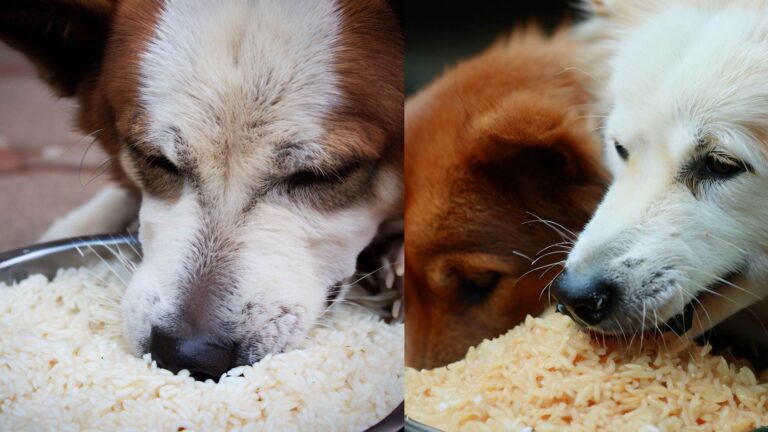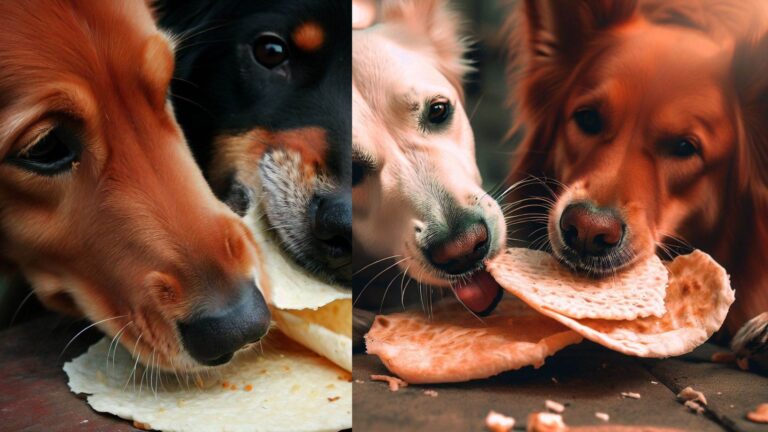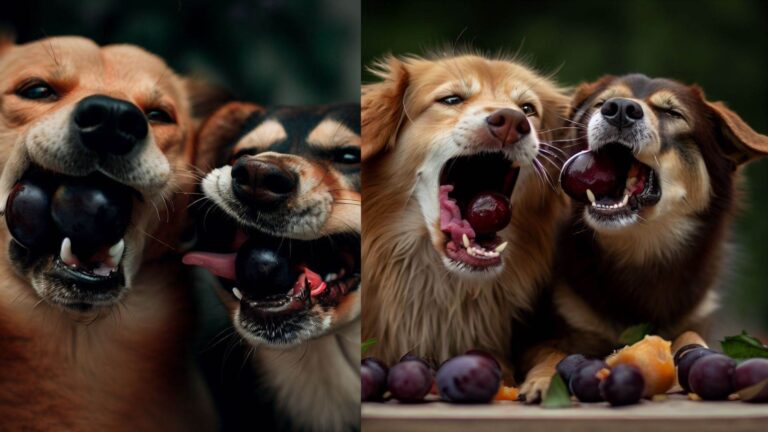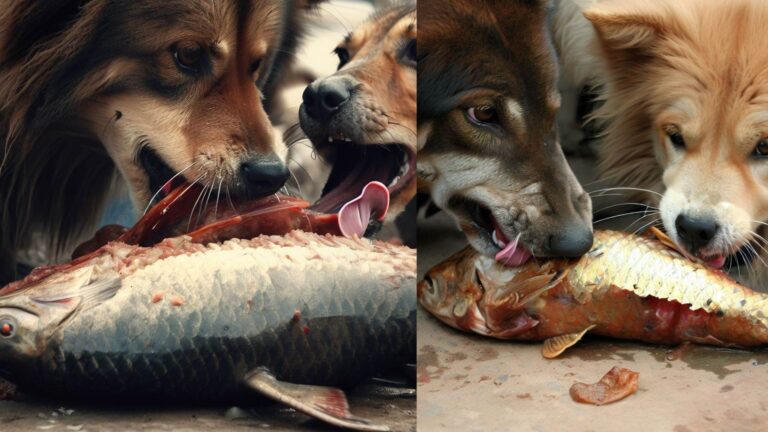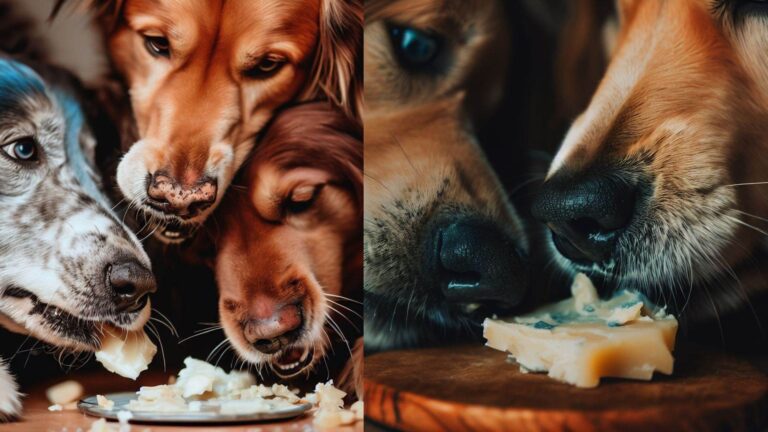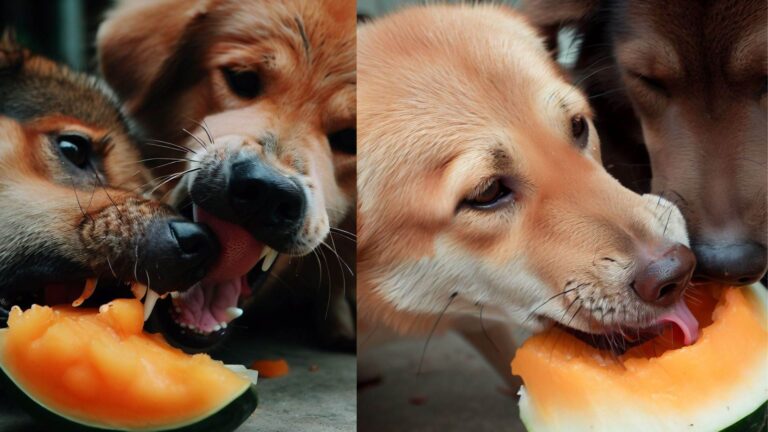Pork rinds are a popular snack for humans, but can they be given to dogs? This is a common question that many dog owners ask, and the answer is not straightforward. While pork rinds are not toxic to dogs, they should be given in moderation and with caution.
This blog post will explore the pros and cons of feeding pork rinds to dogs, the potential health benefits, and the risks associated with this popular snack.
Table of Contents
What Are Pork Rinds?
Pork rinds, also known as chicharrones, are a popular snack made from pig skin. They are typically deep-fried until crispy and crunchy and often seasoned with spices and flavorings.
Pork rinds are a low-carb, high-protein snack popular among people following a keto or paleo diet. They are also a good source of collagen, a protein that is essential for healthy skin, hair, and nails.
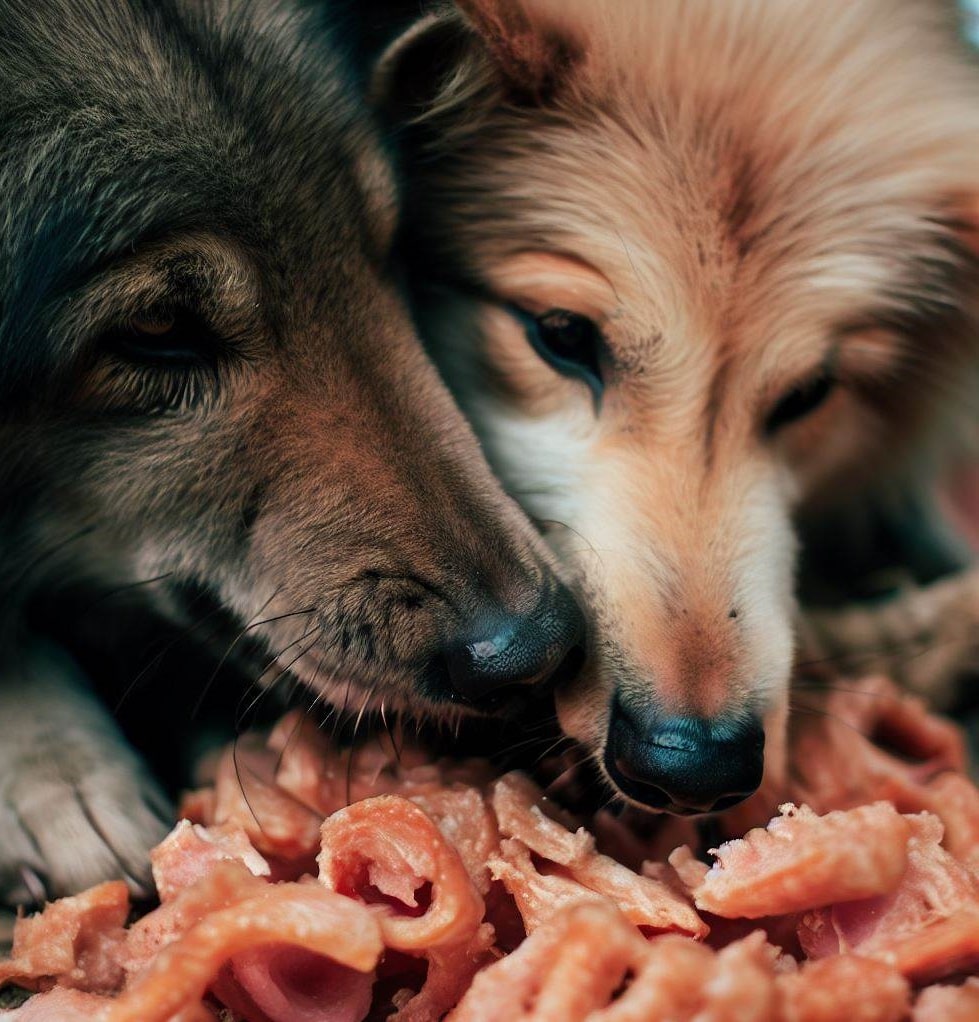
Can Dogs Eat Pork Rinds?
The short answer is yes; dogs can eat pork rinds. Pork rinds are not toxic to dogs and are a good protein source. However, they should be given in moderation and with caution.
While pork rinds are a low-carb snack, they are high in fat and sodium. Too much fat in a dog’s diet can lead to obesity, pancreatitis, and other health problems. Too much sodium can also harm dogs, especially those with kidney or heart problems.
In addition, pork rinds can be a choking hazard for dogs, especially if they are not chewed properly. This is especially true for small dogs, who may struggle to chew larger pieces of pork rind.
Potential Health Benefits
While pork rinds should be given in moderation, they do offer some potential health benefits for dogs. For example, pork rinds are a good source of protein, which is essential for building and repairing muscle tissue.
Pork rinds are also a good source of collagen, which can help improve skin and coat health. Collagen is essential for healthy skin, hair, and nails and can help reduce inflammation and promote healing.
In addition, pork rinds are a low-carb snack, which can be beneficial for dogs with diabetes or other health problems that require a low-carb diet.
Risks and Considerations
While pork rinds are generally safe for dogs to eat, there are some risks and considerations to keep in mind.
As mentioned earlier, pork rinds are high in fat and sodium, which can be harmful to dogs in large quantities. They can also be a choking hazard, especially for small dogs.
If you decide to give your dog pork rinds, be sure to do so in moderation and only as an occasional treat. It’s also a good idea to monitor your dog closely while eating pork rinds and cut them into smaller pieces if necessary.
In addition, if your dog has a history of pancreatitis, kidney disease, or heart problems, it’s best to avoid giving them pork rinds altogether.
Read More: Can Dogs Eat Jelly?
FAQs
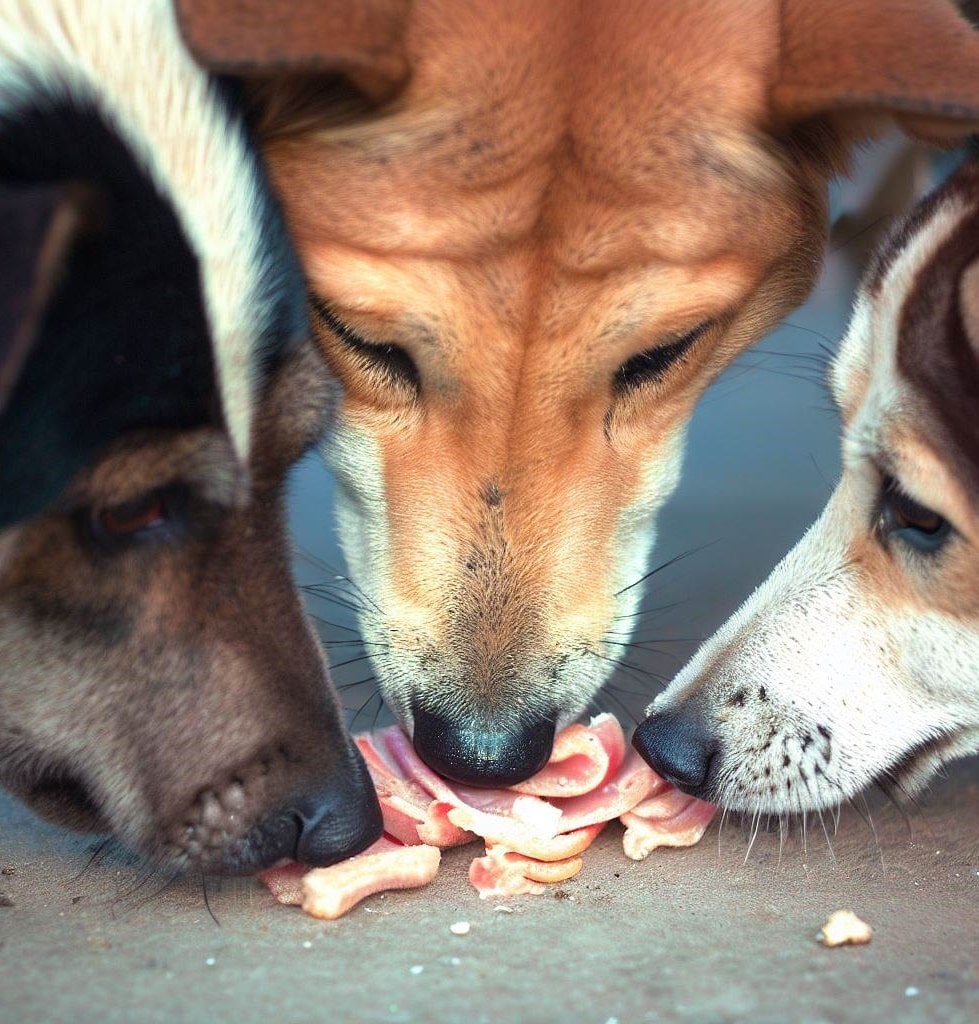
Are pork rinds safe for dogs to eat?
Yes, pork rinds are generally safe for dogs to eat, but they should be given in moderation and with caution.
Can pork rinds cause pancreatitis in dogs?
Too much fat in a dog’s diet can increase the risk of pancreatitis, so it’s important to give pork rinds to your dog in moderation.
Are pork rinds good for dogs?
Pork rinds can be a good source of protein and collagen, which can be beneficial for dogs’ skin, coat, and muscle health. However, they are also high in fat and sodium, so they should be given in moderation.
Can pork rinds cause diarrhea in dogs?
Eating too much fat or salt can upset a dog’s stomach and cause diarrhea, so it’s important to give pork rinds to your dog in moderation.
Can pork rinds be a choking hazard for dogs?
Yes, pork rinds can be a choking hazard for dogs, especially if they are not chewed properly. It’s important to monitor your dog while they are eating pork rinds and cut them into smaller pieces if necessary.
Can dogs with kidney disease eat pork rinds?
Dogs with kidney disease should avoid high-sodium foods like pork rinds, as too much sodium can be harmful to their health.
Can puppies eat pork rinds?
Puppies can eat pork rinds in moderation, but it’s important to cut them into small pieces and monitor them closely while they are eating.
Can dogs with diabetes eat pork rinds?
Pork rinds are a low-carb snack that can be beneficial for dogs with diabetes. However, they are also high in fat, so it’s important to give them to your dog in moderation.
Can dogs eat flavored pork rinds?
Flavored pork rinds may contain additional ingredients that are not safe for dogs, such as onion or garlic powder. It’s important to check the ingredients list before giving your dog flavored pork rinds.
Can pork rinds cause weight gain in dogs?
Pork rinds are high in fat, so eating too many can contribute to weight gain in dogs. It’s important to give them to your dog in moderation and monitor their weight closely.
Conclusion
In conclusion, dogs can eat pork rinds in moderation and with caution. While pork rinds are a good source of protein and collagen, they are high in fat and sodium and can be a choking hazard.
If you decide to give your dog pork rinds, be sure to do so in moderation and monitor them closely while they are eating. It’s also important to consult with your veterinarian before giving your dog any new treats, especially if they have a history of health problems.

